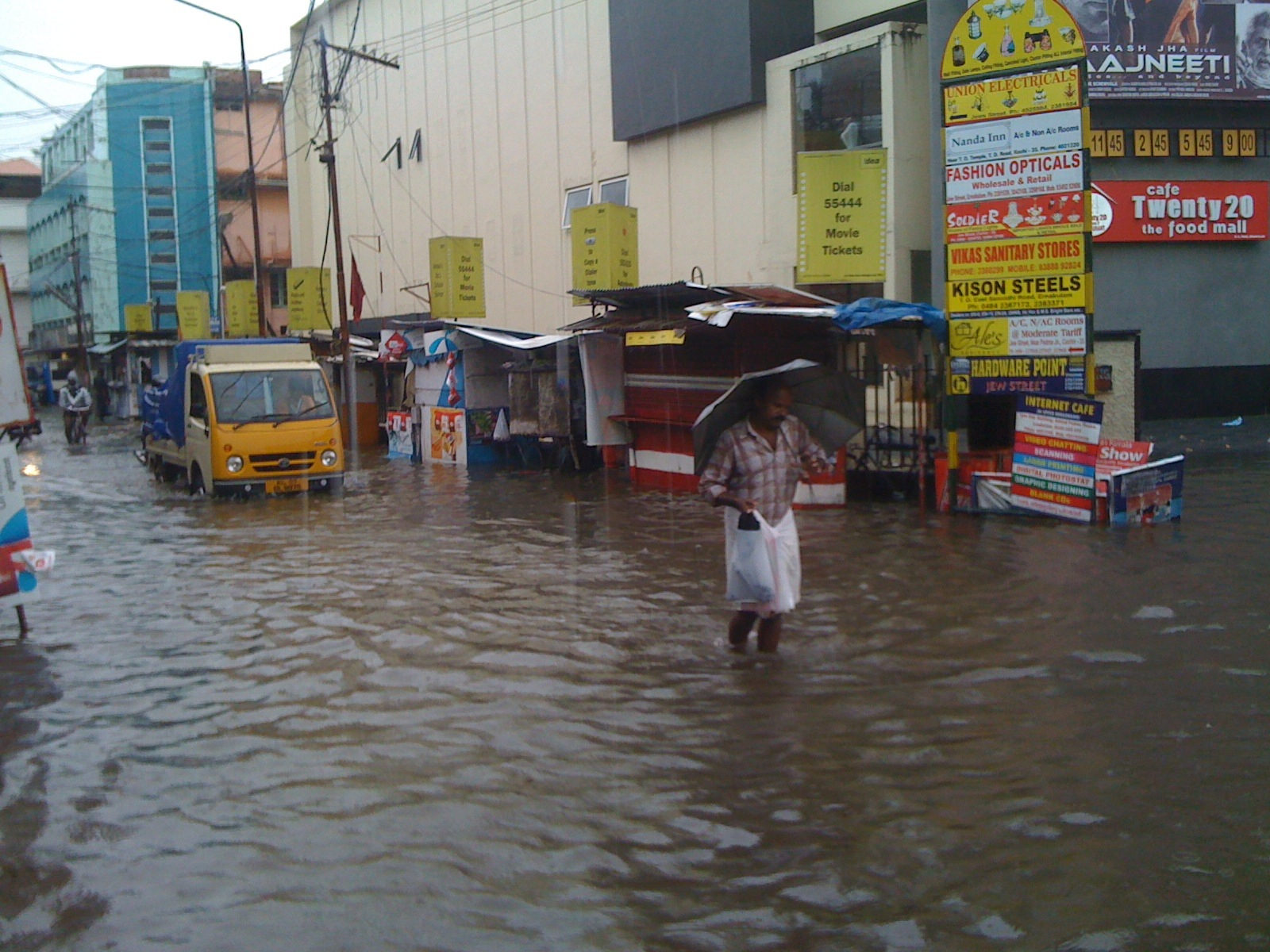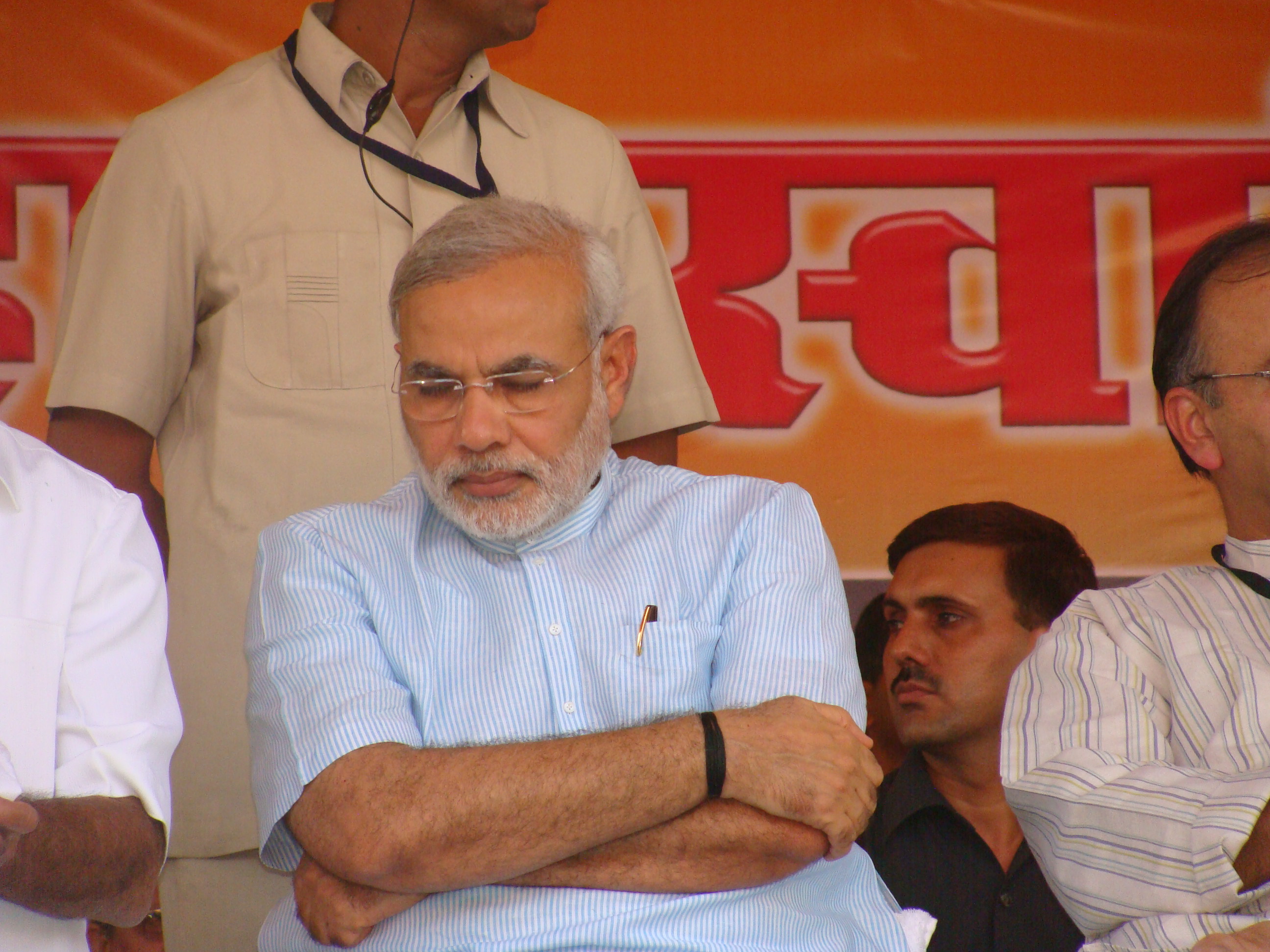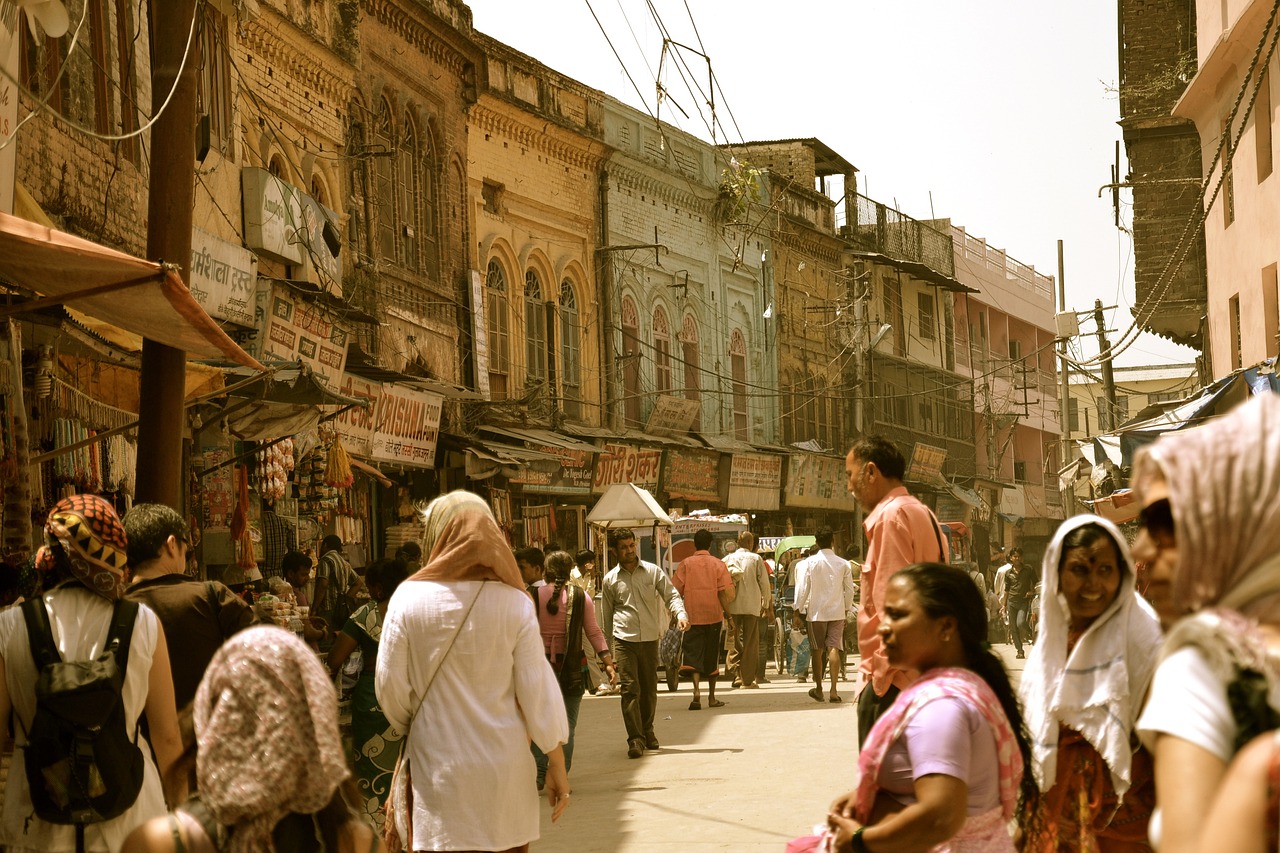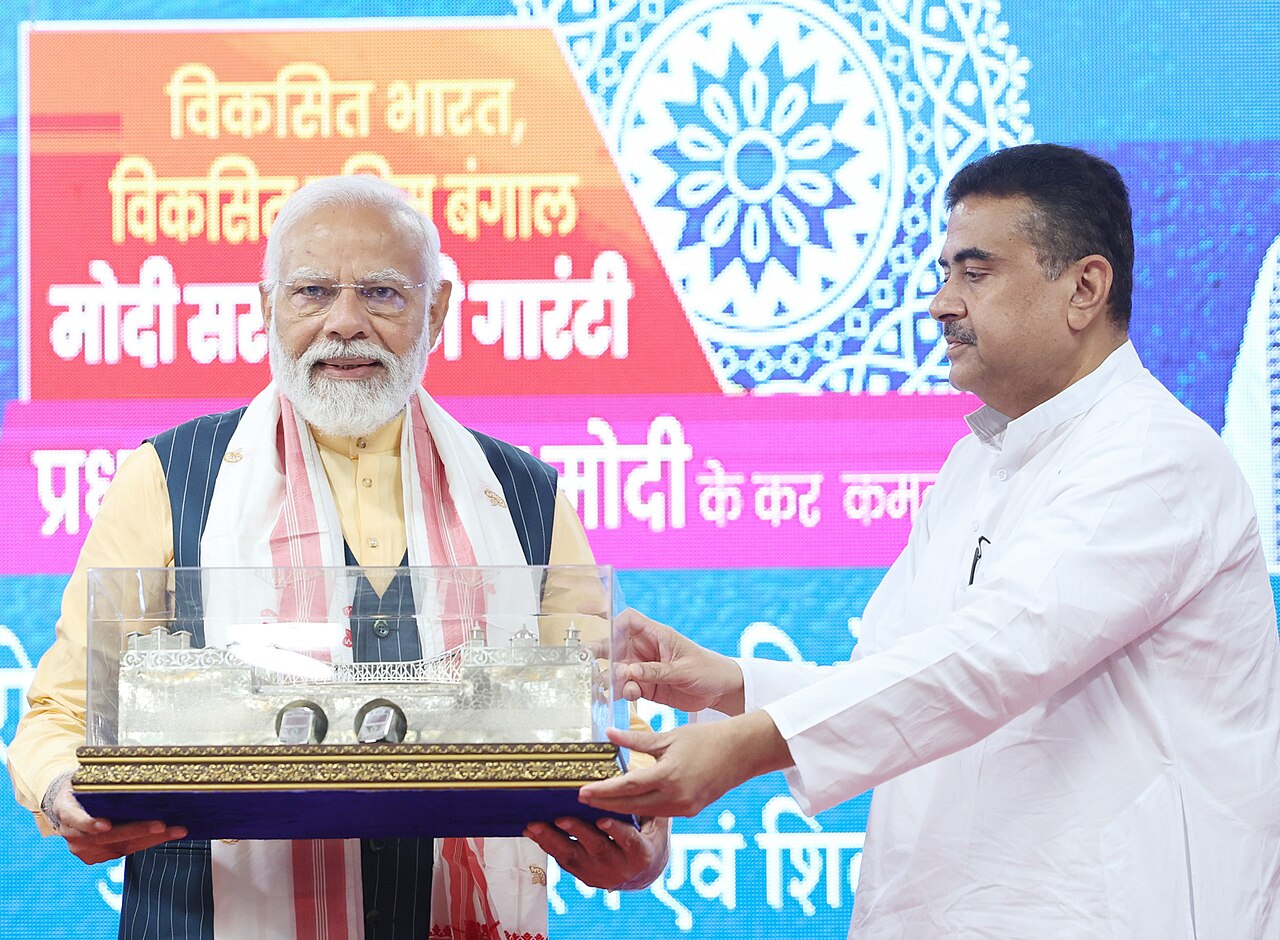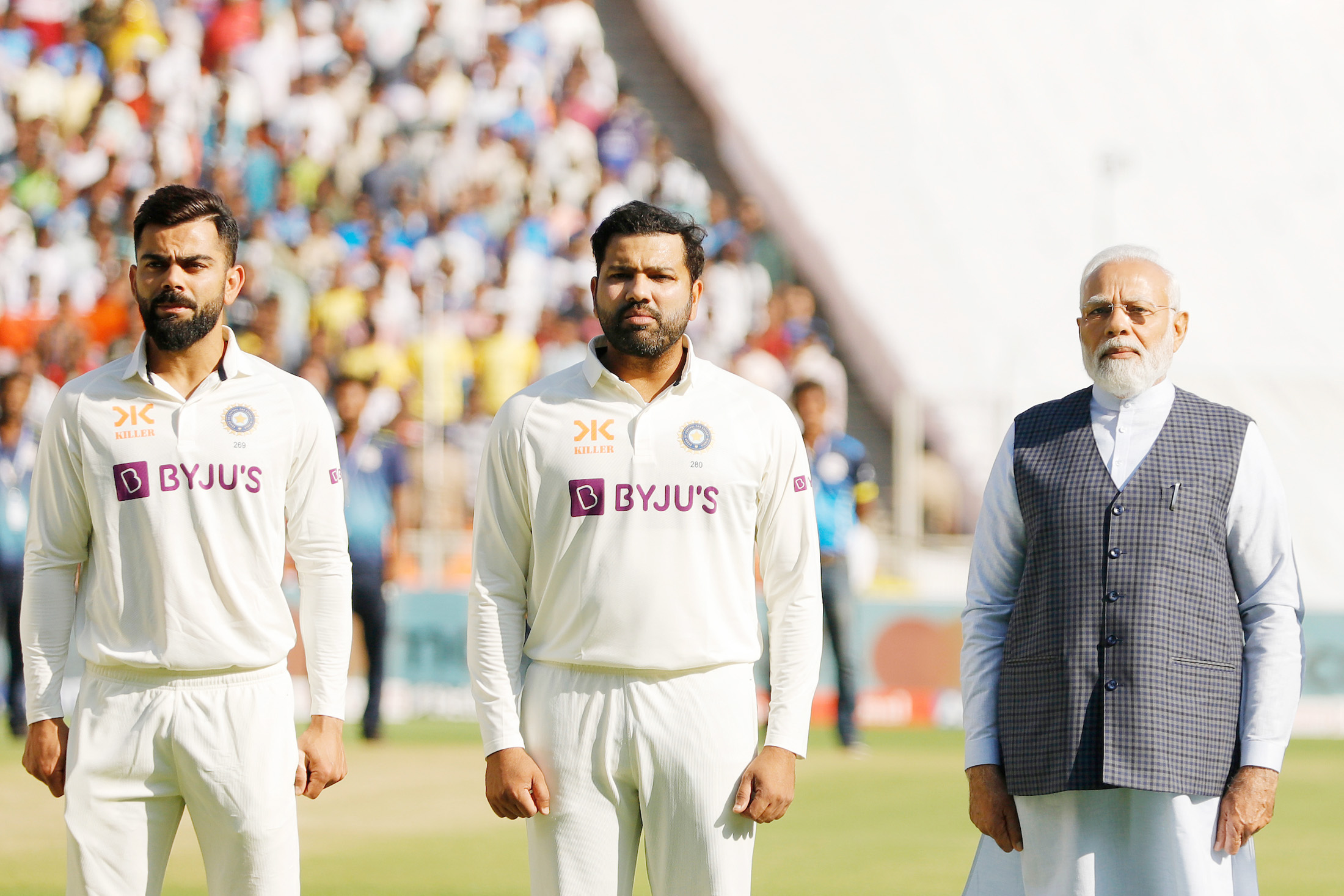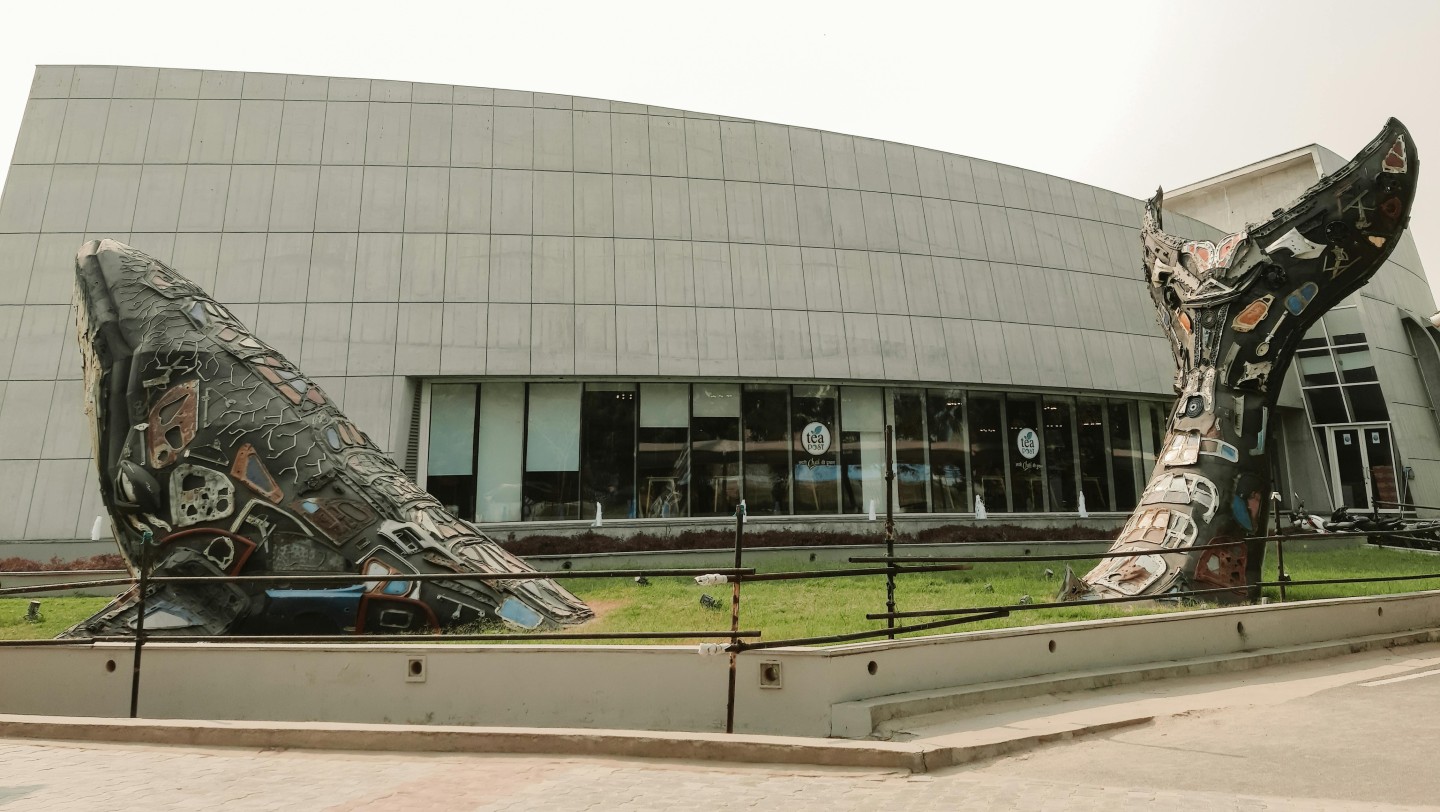With India positioning itself as a global player, the microscope falls on PM Narendra Modi’s foreign policy.
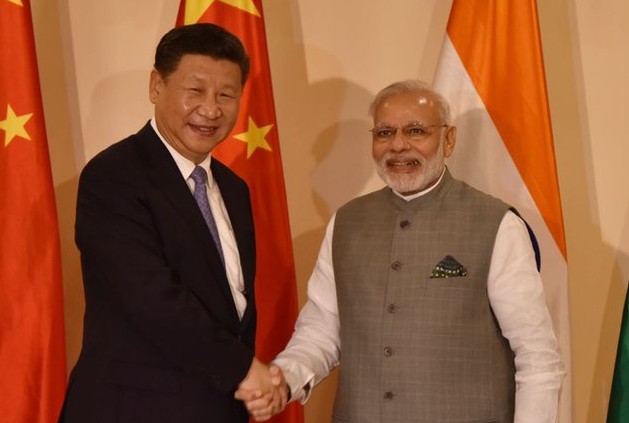 Xi Jinping’s China will continue to present numerous foreign policy challenges to Narendra Modi, if he wins the election. : Prime Minister’s Office Public Domain
Xi Jinping’s China will continue to present numerous foreign policy challenges to Narendra Modi, if he wins the election. : Prime Minister’s Office Public Domain
With India positioning itself as a global player, the microscope falls on PM Narendra Modi’s foreign policy.
A post on X in April asked Indians to “Vote for BJP and make Bharat a superpower globally!” The quote was accompanied by an image that pointed to the party’s “Target audience” (India) and the “Actual Audience”, the entire world.
What appears to be a standard promotional tweet by India’s ruling party, the Bharatiya Janata Party (BJP), marked the start of a six-week election campaign which will draw to a close on June 1. Results will be announced on June 4.
While foreign policy tends to be a minor subject in Indian elections, the BJP’s post shows that this election campaign is equally focused on India’s place in the world, with the party taking every opportunity to boast of its global achievements since it took power in 2014.
India is an aspirational great power and the last few years have been significant for its foreign policy.
India hosted the G20 Summit in September 2023 and was recognised as the world’s fifth-largest economy. It has expanded international partnerships with new trade and security deals, championed the cause of the Global South and promoted its claim to a global leadership position.
India as a global player
Prime Minister Narendra Modi’s government has constructed a narrative of a “New India” that is open for business and ready for a seat at the global table.
In its 2024 election manifesto, in addition to highlighting its vision and “success” in “Good Governance and Vikas (Development)”, the BJP has applauded its many foreign policy achievements.
The manifesto further promises Modi’s guarantee for a Bharat First Foreign Policy, one that will uphold India as a global friend — a “reliable, trusted and dependable voice”, a leader of the Global South.
The BJP promises to strengthen India’s maritime vision, expanding its diplomatic network and strategic partnerships if re-elected.
The manifesto claims that “Bharat is the mother of democracy” and that India’s “civilisational values, thoughts, wisdom and traditional knowledge have found a place of pride at the world stage.”
This flows consistently with arguments that argue previous governments, with their insistence on non-alignment, secularism and preference for ideology over pragmatism in foreign policy, have kept India behind.
Modi particularly has been credited as giving “wings to India’s aspirations of playing a larger international role”, through an assertive foreign policy that has upheld crucial national security interests while championing soft power and the promotion of India’s cultural heritage.
A six-week election campaign, however, means there can be significant twists and turns.
The BJP is being challenged by a multi-party political alliance that refer to themselves interestingly with the acronym INDIA that stands for Indian National Developmental Inclusive Alliance. Led by the Indian National Congress, the alliance is drawing significant attention to the BJP’s failures and shortcomings.
Relations with the neighbours
As the election unfolds, the BJP has shifted from an initial focus on economic development to familiar tropes of inflammatory statements on Pakistan and India’s religious divide — directly targeting Congress’s historical appeasement of Muslim minorities and failure to act decisively against terrorism emanating from Pakistan.
In projecting its proactive and muscular foreign policy against Pakistan, BJP leaders have returned to speeches that talk about giving a befitting reply to Pakistan.
There have been renewed calls for the integration of Pakistan-administered Kashmir with India. Modi has lashed out at the opposition INDIA bloc, calling its leaders “cowards” who were “scared of Pakistan’s nuclear power”.
Any incoming government will inherit foreign policy achievements but also continuing challenges.
India has struggled to retain influence with almost all of its neighbours participating in China’s Belt and Road Initiative.
Additionally, anti-India sentiment has grown in Maldives and Bangladesh.
While the BJP manifesto makes a rudimentary promise to follow a neighbourhood first policy, the Congress has pledged to repair India’s relations with its neighbours — specifically noting Nepal and Maldives.
The China challenge
The direct territorial challenge from China on India’s northern border continues to be a flashpoint for active conflict.
Bilateral negotiations have made slow progress and both sides have intensified border patrols and infrastructure development.
Although the BJP has promised robust infrastructure development in border areas, as the government in power, it has largely failed to resolve this issue. China remains conspicuously absent from the party’s election rhetoric — as noted by the opposition parties.
A significant part of India’s foreign policy overtures in recent years has been towards Western powers and the broader Indo-Pacific.
These advances have been based on their shared interests in countering China’s growing global footprint as well as the insistence on shared values. These refer explicitly to India’s strong democratic credentials and adherence to rule of law at home and international law abroad.
However, continuing concerns over democratic backsliding in India, represented by the Modi government’s impunity to violence against minorities, restrictions on press freedom and a dwindling human rights record, are showing signs of strain on New Delhi’s foreign policy engagements.
This became apparent in 2023, when the Canadian government blamed India for the assassination of Canadian citizen and Sikh leader Hardeep Singh Nijjar in Vancouver. India considered Singh a terrorist associated with the extremist Khalistan movement.
While this incident has led to a souring of India-Canada relations, similar charges have since come from the US and Australia on India’s role in attempts at international espionage and extra-judicial killings.
While the Modi government’s responses have ranged from diplomatic restraint to outright rejection, these issues are likely to become an irritant for future governments.
Twin conundrums in Ukraine and Gaza
India’s international posture has also displayed a lack of clarity in an increasingly polarising world.
This became clear in India’s refusal to condemn or sanction Russia after its invasion of Ukraine in 2022.
India chose a path that was distinct from its newfound partners in the West. Indian leadership has continued to emphasise its need and right to prioritise its own interests in this case and, after initial criticism, India’s partners have reconciled to its stand.
Similarly, following Hamas’ October 7, 2023 attack on Israel and the latter’s invasion of Gaza, Indian policy has been put in a difficult situation.
Although a historical supporter of the Palestinian cause, the Modi government has fostered a close partnership with Israel over the past decade, extending to an ideological alignment between the BJP and Israel.
The current crisis places India in a similar conundrum as the Russia-Ukraine war.
India initially abstained from United Nations resolutions calling for a ceasefire but, in December 2023, voted for a draft resolution in the UN General Assembly that demanded an immediate humanitarian ceasefire and unconditional release of all Israeli hostages held by Hamas.
As the conflict continues, so does the challenge for any incoming Indian government.
By any account, this is a polarising election for India between two distinct schools of thought: One that considers Modi as the “best candidate” and a “harbinger of change” and another that highlights the damage the Modi government has inflicted on India’s democratic ethos.
The impact of domestic and regional challenges as well as India’s efforts to walk a tightrope in global politics will undoubtedly continue to shape foreign policy in coming years.
While the government celebrates Indian democracy, it continues to condemn its friends in the West for “interference” in domestic politics.
However, given the geopolitical environment, broader foreign policy goals are likely to remain unchanged no matter which government comes to power — not necessarily owing to ideological approaches or an activist foreign policy but because of the continued value for India’s economy and strategic relevance to global affairs.
Stuti Bhatnagar is a visiting researcher at the Strategic and Defence Studies Centre at the AustralianNational University. She specialises in Indian foreign policy and South Asian politics. She is the author of “India’s Pakistan Policy: How Think Tanks Are Shaping Foreign Relations”, published by Routledge in 2021.
Originally published under Creative Commons by 360info™.
Editors Note: In the story “Indian election” sent at: 17/05/2024 14:01.
This is a corrected repeat.




